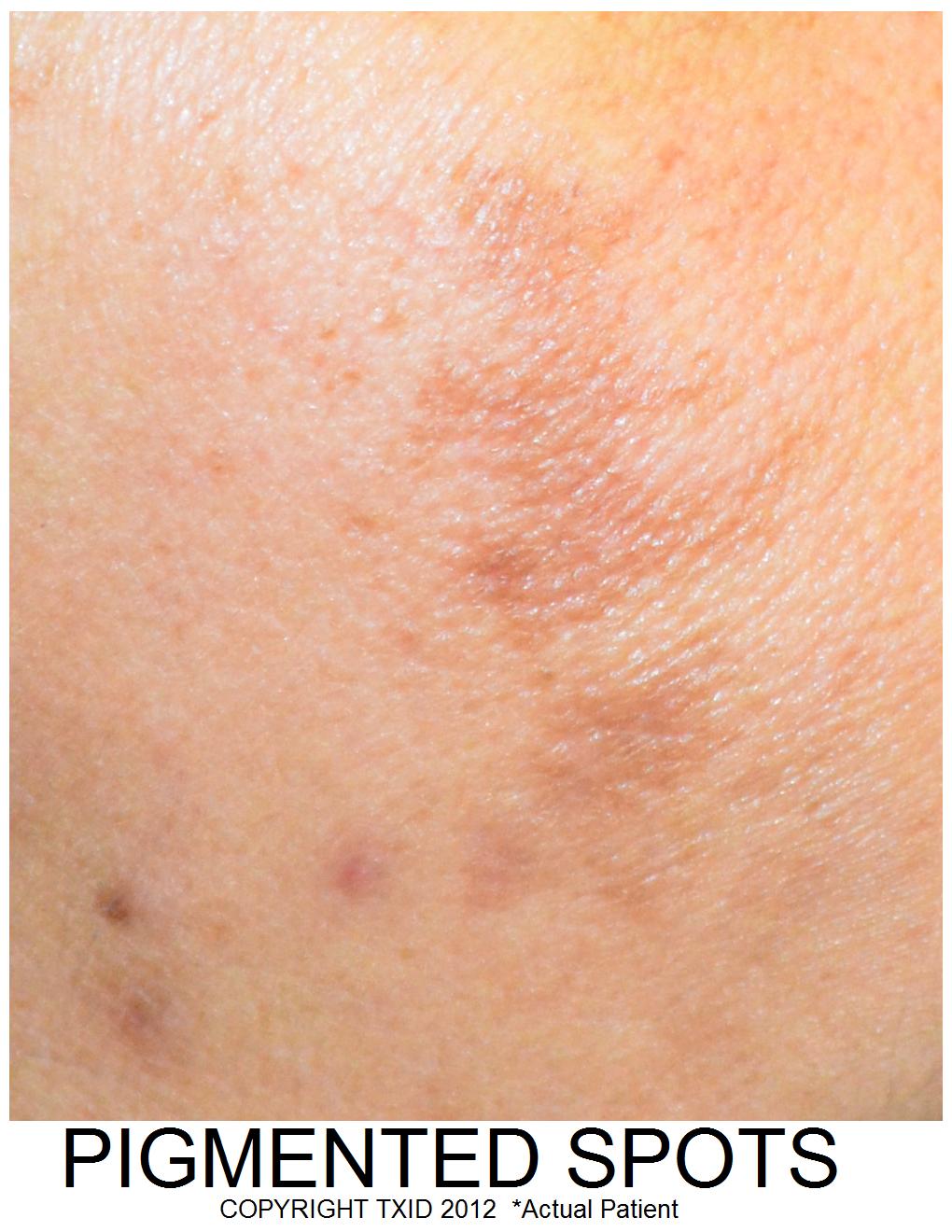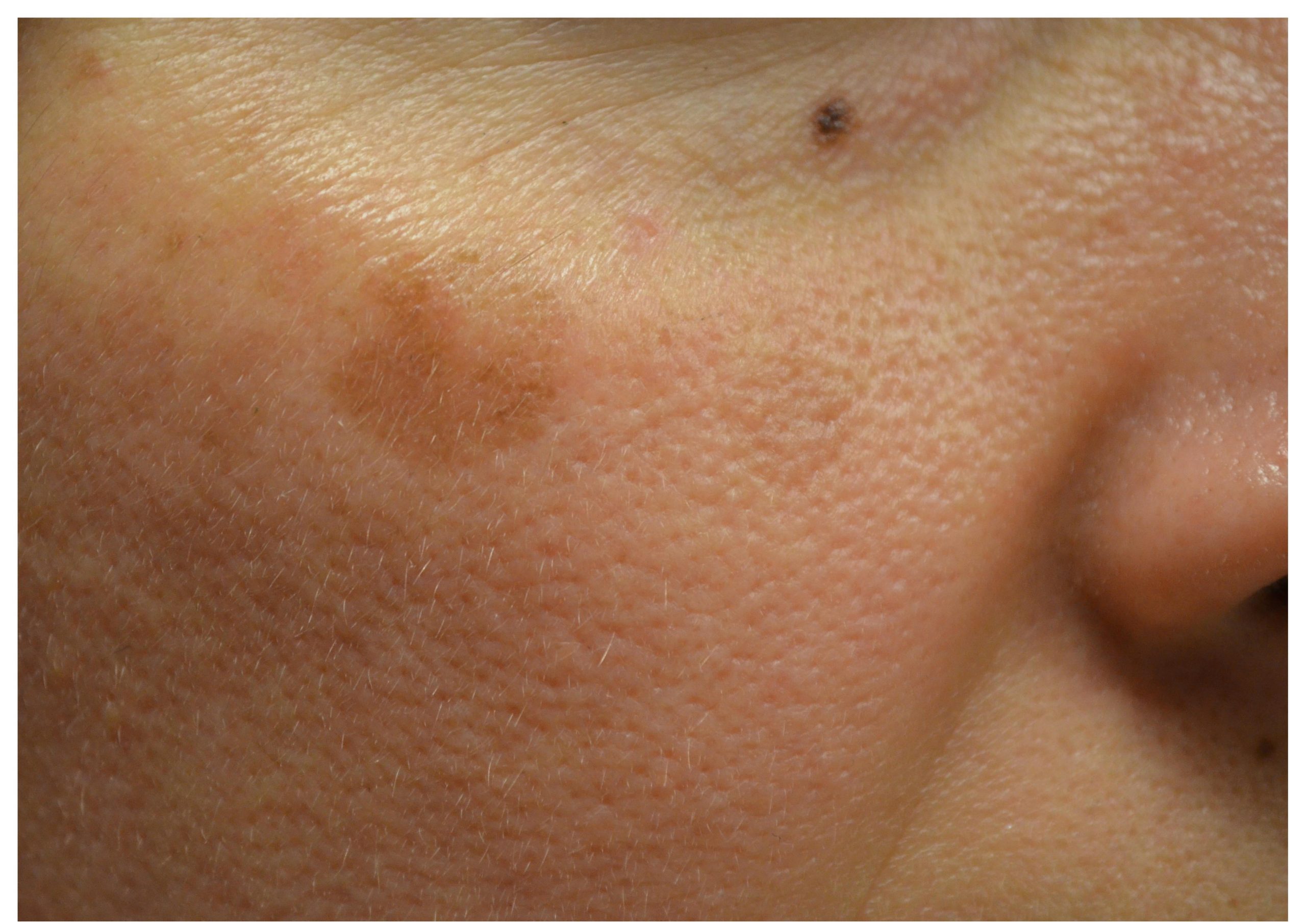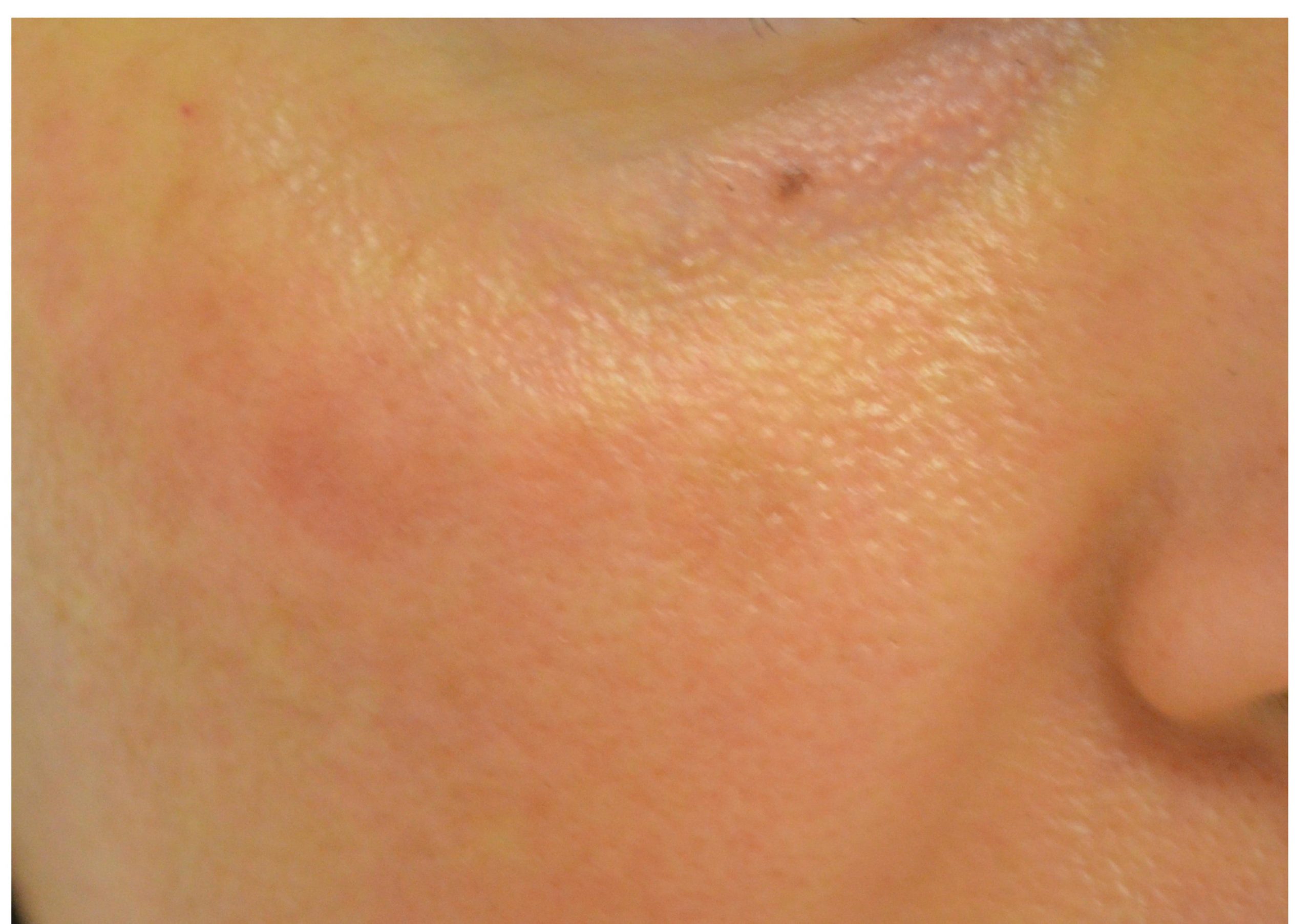Pigmented Spots
Pigmented Spots, such as Melasma, can be a cause of cosmetic concern for many patients. These spots generally arise as a result of over-exposure to the sun. While pigmented spots can present in any individual, younger women with brownish skin tones tend to be at higher risk for developing pigmented spots as well as individuals from Asian, Latin, African, and Native American descent. Additionally, studies have shown that some pigmented spots are associated with the female hormones estrogen and progesterone. Therefore, women who are going through strong hormonal changes, such as during pregnancy or menopause, tend to be at a higher risk for developing pigmented spots.

What are the treatment options?
Treatments vary across the spectrum depending on the severity and type of pigmented spots. The following treatments are available, and the dermatologist can recommend which treatment is best suited for your particular case:
- Topical Creams – Studies have shown that creams containing tretinoin, azelaic acid, and kojic acid have shown improvements in pigmented spots. At the Texas Institute of Dermatology, we recommend using Obagi’s NewDerm kit, La Roche-Posay’s Mela-D serum, and/or Isis Pharma’s Unitone 4 depigmentation creams.
- Chemical Peels – Chemical peels are controlled dermal abrasion treatments that aim to engage the skin’s natural regenerative processes. By removing the top layer of skin, the deeper layers kick into action promoting new growth, which may help reduce pigmented spots on the face. This treatment may not be a good option for very dark skin.
- Laser Treatments – Recent advances in laser technology have shown significant improvements in treating pigmented spots. The FDA-approved Spectra laser uses intense pulsed light (IPL) to significantly lighten or remove pigments without harming surrounding, healthy skin cells. This is accomplished through multiple hand pieces that can target specific pigment. Recent studies have shown that, with statistical significance, the 1064 nm Q-Switched laser, at low fluence and short pulsed widths, showed significant improvement in Melasma, a form of pigmented spots.
- I-Bright – At the Texas Institute of Dermatology we offer a unique combination of technology to treat pigmented spots. I-Bright utilizes Microdermabrasion , Advanced Fluorescent Technology (AFT) , Spectra, and a Fractional CO2 laser treatment to address pigmented spots.
- Microdermabrasion – mechanically removes the top layer of skin using a small titanium tip similar to fine-grained sand paper. This helps to smooth the skin and also improve the efficacy of the Spectra and Fractional CO2 lasers.
- Advanced Fluorescent Technology (AFT) – uses modified, therapeutic intense pulsed light (IPL) to treat redness, fine lines, flushing, and pigmented skin helping to restore even tones to the skin.
- Spectra Laser – can specifically target and neutralize unwanted pigmented spots.
- Fractional CO2 laser – light penetrates the deeper layers of the skin and target the melanocytes





Why choose the Texas Institute of Dermatology for treatment of pigmented spots ?
Our mission is to serve as a leading center for understanding and treating skin, hair, and nail diseases in South Texas through excellence in patient care, research, and education.
We want you to feel that you have been treated with the comfort, privacy, safety, and satisfaction that you deserve. This is why all of our procedures are performed or supervised by our renowned dermatologist, Dr. Reza Ghohestani. His experience, combined with the latest technology and a caring staff, is why the Institute is consistently ranked among the top dermatology centers in San Antonio and Boerne areas based on satisfaction surveys.
We currently serve communities throughout Bexar and Kendall counties, including San Antonio, Boerne, Leon Springs, Fair Oaks Rank, Canyon Lake City, etc. Many of our patients also come from San Marcos, New Braunfels, Kerrville, Austin, Wimberly, and Corpus Christi.

For an appointment, call 210-698-6777
Stone Oak Clinic: 238 North Loop 1604 E, Suite 208, San Antonio , TX 78232
Leon Springs CLinic: 24165 W IH-10, Suite 102, San Antonio, TX 78257
